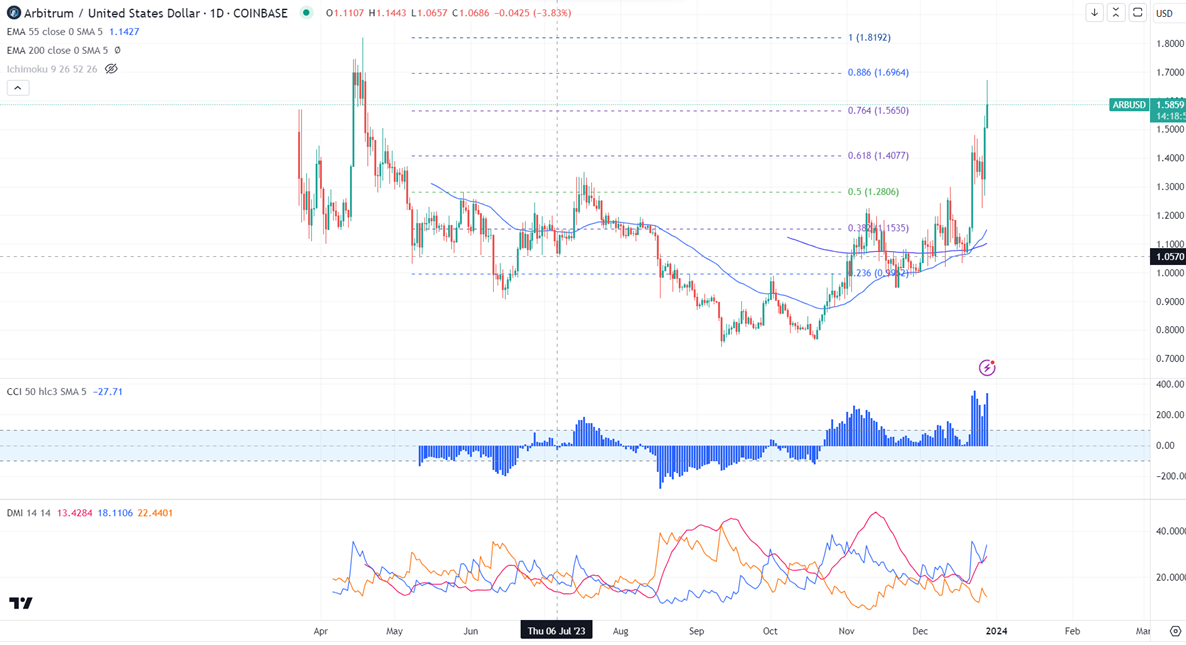Arbitrum is the leading Layer 2 technology that empowers you to explore and build in the largest Layer 1 ecosystem Ethereum.
Four key roles of the Arbitrum ecosystem-
Verifiers:
The Verifier is the global entity or distributed protocol that verifies the validity of transactions and publishes accepted transactions. Arbitrum contracts are very cheap for verifiers to manage. Its verifiers need only verify a few digital signatures for each contract. The Verifier tracks the hash of the VM's inbox rather than the full state.
Virtual machine- (VM)- It is a virtual participant in the protocol that encodes the rule of the contract. Parties can send messages and currency to a VM, and a VM can itself send messages and currency to other VMs or other parties.
Key- A key is a participant in the protocol that can own currency and propose transactions.
A manager of a VM is a party that monitors the progress of a particular VM and ensures the VM's correct behavior.
Optimistic rollup (ORs)-
It is a layer 2 scalability technique that bundles multiple off-chain transactions in large batches on Ethereum's layer 1 into a single transaction. It helps to reduce gas fees and network congestion. Optimistic blockchain uses Superchain to improve scalability. Optimistic rollups execute transactions outside of Ethereum but post transaction data to Mainnet as call data.
Consensus mechanism-
They don't have their consensus mechanism and it leverages the Ethereum consensus mechanism for their operation.
Arbitrum sequencer -
It is a specially designated full node responsible for ordering incoming user transactions onto L1 based on a first-come-first-serve basis.
Arbitrum bridge -
It helps to transfer ETH or ERC 20 tokens between the parent and Child chain.
Arbitrum upgrade-
The recent upgrade from Arbitrum classic to Nitro improves Arbitrum in several ways
Helps to reduce data size without sacrificing data integrity
Increases performance of L1 nodes, and thus offering low fees
Arbitrum main features
Demonstrated Transaction per second 40000
ARBUSD prices jumped more than 60% from Dec's low of $1.02 after a surge in daily transactions. It hit a high of $1.67 at the time of writing and is currently trading around $1.58. The pair is holding above the short-term (21 and 55-day EMA) and above the long-term moving average (200-day EMA).
The near-term resistance is around $1.85, any indicative breach above will take the pair to $2.23/$2.48. On the lower side, immediate support is $1.40, and any violation below targets $1.20/$0.94/$0.73.
Indicators ( Daily chart)
CCI(50)- Bullish
Directional movement index - Bullish
It is good to buy on dips around $1.25 with SL around $0.74 for TP of $2.48.



 Energy Sector Outlook 2025: AI's Role and Market Dynamics
Energy Sector Outlook 2025: AI's Role and Market Dynamics  Moldova Criticizes Russia Amid Transdniestria Energy Crisis
Moldova Criticizes Russia Amid Transdniestria Energy Crisis  Global Markets React to Strong U.S. Jobs Data and Rising Yields
Global Markets React to Strong U.S. Jobs Data and Rising Yields  China’s Growth Faces Structural Challenges Amid Doubts Over Data
China’s Growth Faces Structural Challenges Amid Doubts Over Data  Gold Prices Fall Amid Rate Jitters; Copper Steady as China Stimulus Eyed
Gold Prices Fall Amid Rate Jitters; Copper Steady as China Stimulus Eyed  Wall Street Analysts Weigh in on Latest NFP Data
Wall Street Analysts Weigh in on Latest NFP Data  UBS Predicts Potential Fed Rate Cut Amid Strong US Economic Data
UBS Predicts Potential Fed Rate Cut Amid Strong US Economic Data  US Futures Rise as Investors Eye Earnings, Inflation Data, and Wildfire Impacts
US Futures Rise as Investors Eye Earnings, Inflation Data, and Wildfire Impacts  FxWirePro- Major Crypto levels and bias summary
FxWirePro- Major Crypto levels and bias summary 































